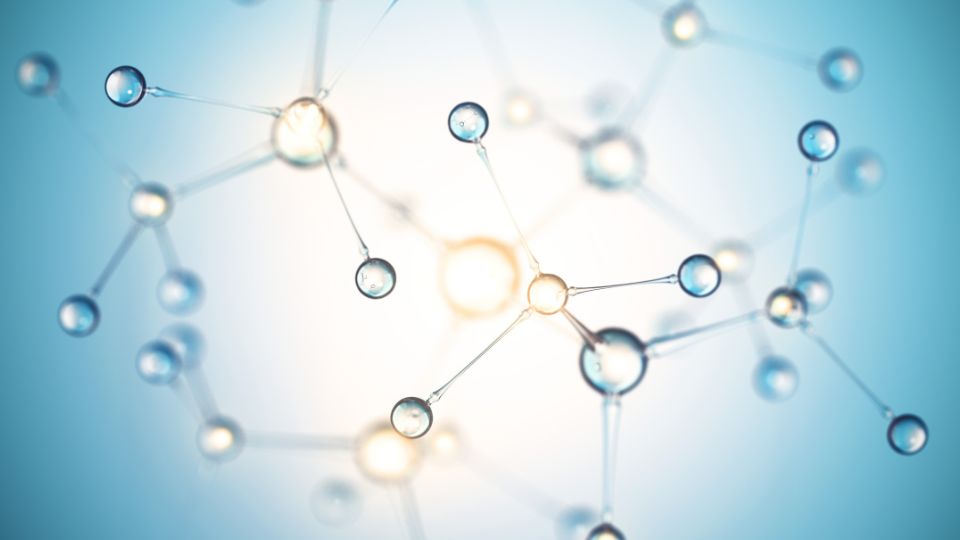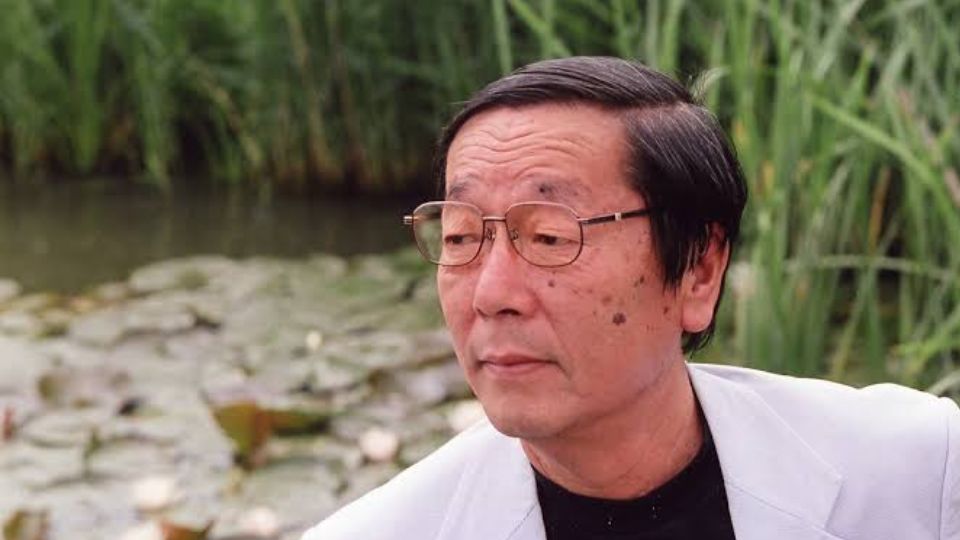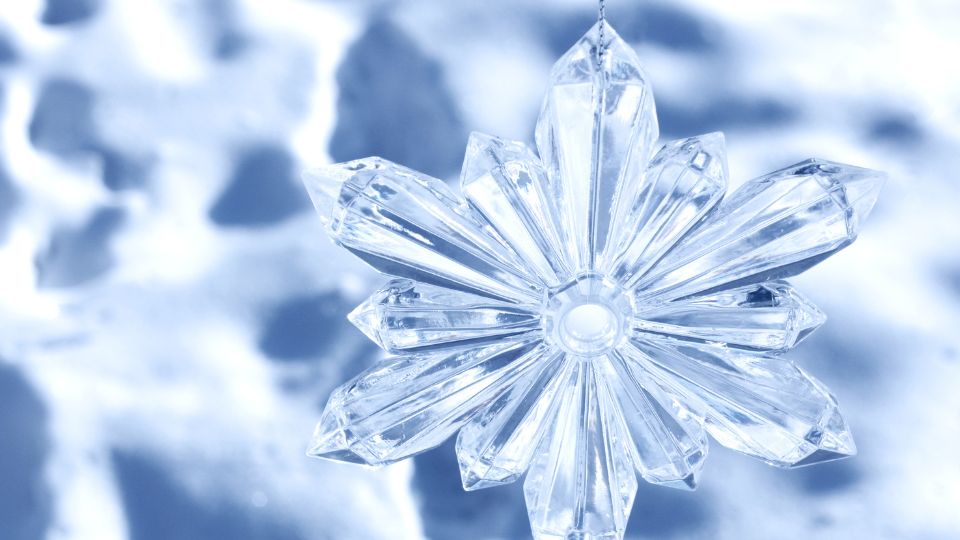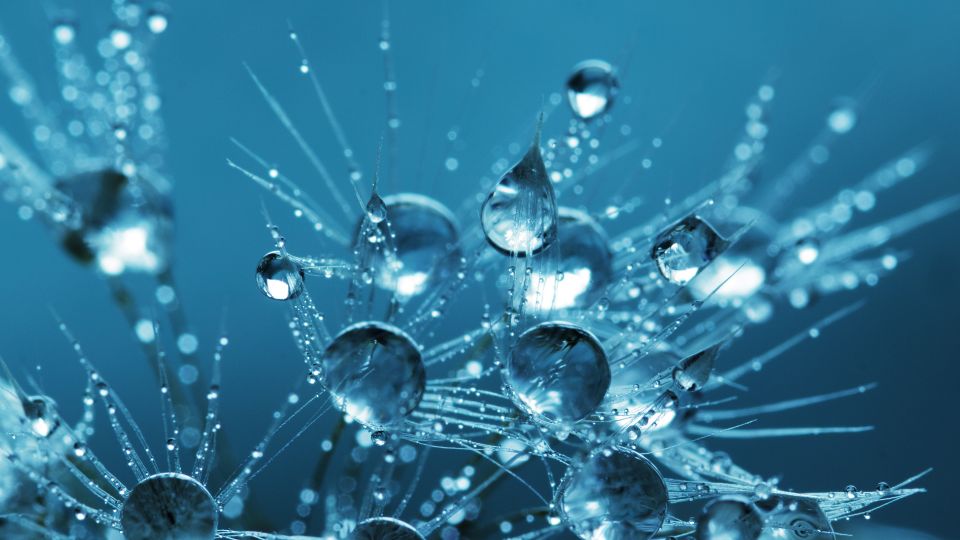- There are no more items in your cart
- Shipping
- Total zł0.00
The memory of water intrigues many researchers and enthusiasts seeking answers to the question of whether water can store information about the factors it has encountered. Some claim that the memory of water affects our health and daily functioning, while others view this issue with a significant dose of skepticism. In the article below, you will find explanations, water research, controversies, and opinions on whether water can have the ability to remember.
In this article, you will learn
- What the concept of water memory is and what its basic assumptions are.
- Who Masaru Emoto was and what his experiments with water crystals involved.
- What scientific research has been conducted on water memory and what its results are.
- What the controversies in the scientific community regarding this phenomenon are.
- How quantum theory attempts to explain water memory.
- What the summary and conclusions of water quality specialists on this topic are.
What does it mean that water has memory?
Imagine that an ordinary glass of H₂O – in the opinion of some – **reacts to** physical, chemical, and sometimes even emotional stimuli. The concept of water memory assumes that water can store traces of substances, energy, or information it has come into contact with. Proponents claim that the structure of water changes in this process, possibly in a transient manner, or perhaps more permanently.
The essence of the idea that water has memory is the belief that even after the original factors (e.g., dissolved substances) have been removed, water somehow "remembers" their presence. Then, in subsequent stages of contact with the human body or other biological systems, it can "transmit" the recorded information.
Explanation of the term "water memory"
The term **water memory** is mainly associated with bold theories presented in the works of various scientists and enthusiasts. The idea gained significance in the 1980s thanks to Jacques Benveniste. He proclaimed the **thesis** that H₂O molecules have the ability to retain the properties of an active substance, even if the water has been diluted to such an extent that the original substance's molecules cannot be detected.
Over the following years, researchers attempted to prove or disprove the hypothesis that **water molecules** arrange themselves into special clusters capable of storing "memories" of previous physical and energetic contacts. Some tests showed inconsistent results, fueling disputes in the scientific community. Some researchers suggested that water **reacts to** energies and vibrations on a scale difficult to capture by standard methods.
Does water have memory? – basic assumptions and controversies
- Those who believe in water memory argue that its **purity** is not only about chemical cleanliness but also about "informational purity."
- They assume that water can continuously absorb and transmit the energies of its surroundings.
- In their opinion, there is a real **influence on water** through electromagnetic radiation, sounds, and even thoughts and words.
On the other hand, skeptics point out that the **memory of water** is not supported by the principles of molecular dynamics. Water, being a liquid, forms and breaks bonds in a very short time, which in their opinion makes it impossible to "record" information for a long time. Nevertheless, the topic continues to ignite the imagination, and discrepancies in research results further fuel it.

Key thought: The concept of water memory assumes that water can store information about substances it has come into contact with, even after their removal. However, this is not a theory widely accepted in the scientific community.
Masaru Emoto and his experiments
When the phrase "water has memory" is mentioned, many people recall Masaru Emoto and his experiments. He is a **Japanese scientist** who became famous for photographs of ice crystals that were said to change depending on emotional and environmental stimuli.
Who was Masaru Emoto (Emoto Masaru)?
Masaru Emoto became interested in **water** in terms of its alleged sensitivity to words, thoughts, and energy. In the 1990s, he began publishing results of experiments and photographs of beautiful, regular ice crystals. According to him, water **is** “alive” and absorbs energy from its surroundings. In his **opinion**, positive emotions and words, such as "love" or "gratitude," evoke harmonious shapes of crystals. Over time, Emoto became a symbol of the movement seeking the extraordinary properties of H₂O, although he also faced sharp criticism for his research within the scientific community.

Masaru Emoto's photographic method - water images
Emoto developed a technique involving freezing water and observing its structure **under a microscope**. **Depending on** the type of stimuli (classical music, words with a positive connotation, heavy rock, insults), the ice crystals took on – according to him – different shapes:
- Water treated with words of love created beautiful, symmetrical patterns.
- Water "exposed" to negative messages froze into irregular, even ugly forms.
Some researchers claim that Emoto selected the photos subjectively. They emphasize that there are many physical factors (temperature, freezing time, impurities) that can influence the shape of the crystals, regardless of whether it is "exposed" to words of love or criticism.

The impact of Emoto's experiments on the popularization of the theory "Water has memory"
Emoto's experiments had a huge **impact on** the awareness and imagination of people around the world. It is thanks to them that the theory of water memory **gained** such notoriety in the 21st century. Although the scientists themselves often have mixed feelings about the methodology of his research, Emoto contributed to the growing interest in the topic, encouraging more people to check and study the properties of H₂O.
Scientific research on water memory
Over time, many initiatives emerged aimed at confirming or debunking the hypothesis of water memory. **Water studies** were conducted in various scientific centers that analyzed the **subject** of the possibility of water retaining molecular changes for a longer time. The use of advanced spectroscopic devices and observational methods **under the microscope** was intended to help detect any differences in the structure of the liquid.
In **Poland** and other European countries, research projects were organized in which teams tried to replicate dilution experiments or trace the configurations of water clusters under specific temperature conditions. The results were often ambiguous, which in turn fueled heated discussions.
Water memory – scientific research and its results
Here, let’s take a look at several projects and publications **through which** scientists tried to shed light on the issue of water memory:
- Experiments by Jacques Benveniste: These were the ones that sparked a global debate. Benveniste claimed that water "remembers" the presence of a biologically active substance even at extreme dilutions. Some researchers attempting to replicate his results did not confirm these observations, citing methodological shortcomings.
- Research by Luc Montagnier: The Nobel Prize winner suggested that water can record information about DNA. He believed that under certain conditions, diluted water samples emitted electromagnetic signals indicating the survival of the "signature" of nucleic acid. These conclusions garnered significant interest but also faced criticism for lacking fully replicable results.
- Analyses by Martin Chaplin: The researcher from London South Bank University has been studying the structure and behavior of water for years. In his publications, he describes the complex properties of water clusters, noting that their formation is extremely dynamic. While he sees fascinating aspects of H₂O's structure, he simultaneously cools enthusiasm by pointing out that stable molecular patterns, necessary for formulating the concept of memory, tend to break down quickly.
- Gerald Pollack's research on the so-called fourth phase of water: Pollack claims that there is an "Exclusion Zone" (EZ) that represents a special structure near hydrophilic surfaces. Although these discoveries are intriguing and suggest more complex properties of H₂O, even Pollack does not directly convince that water memory in the classical sense is a fact – rather, he points to the need for further research on atypical forms of liquids.
The above examples illustrate that the concept of water memory is of interest in various scientific circles, although there is still a lack of consensus regarding its truth. Some researchers see this as a signal to continue the search, while others view it as an argument for even more restrictive analysis of research methods.

Main experiments and conclusions regarding water memory
- The type of substance or energy **that** interacts with water is crucial in many dilution tests. Some claim that the signature of such a substance remains, **even** when chemical analysis cannot detect it.
- Many experimental groups note that changes in water can be short-lived. Environmental conditions (temperature, light, pressure) easily obscure them.
- Researchers continuously test the hypothesis that any potential memory of water may manifest in interactions with living organisms, such as cells or model organisms. Results are often conflicting and do not always confirm the claims of water memory proponents.
These data paint a picture of **water memory** as a fascinating experimental topic, in which much remains to be discovered.
Controversies in the scientific community
Many scholars state the matter plainly: **to acknowledge that water has memory, we need multiple, repeatable evidence.** One high-profile experiment is not enough, especially since water is a substance that constantly changes its structure. There are also doubts about the precise laboratory procedures. Critics point out that many studies are burdened with statistical errors or lack a blind trial.
Proponents retort that modern science does not yet know all the secrets of H₂O, and water memory may require new research concepts and the development of more precise measuring tools. It is possible that only time and technological progress will provide definitive answers.
Worth remembering: Although research on water memory is intriguing, there is still a lack of repeatable scientific evidence that would confirm that water can permanently store information.
The film "The Extraordinary Memory of Water" and its significance
One of the elements popularizing the theory of water memory is the documentary film "The Extraordinary Memory of Water," which raised awareness about this concept. It is a production in which various experts and enthusiasts express their views on the hypothetical properties of H₂O. You can watch it if you want to see how this idea is presented in the media.
Water memory film – main assumptions and message
The film attempts to show that water holds more secrets than we usually assume. It emphasizes the potential significance of water memory in the context of homeopathy, health, and ecology. The creators present selected research results and testimonies from people convinced of the extraordinary characteristics of H₂O. **However, it is worth remembering** that the documentary has a more popularizing than academic character. That is why viewers should treat it as a starting point for further, more specialized sources of knowledge.
Popularity and criticism of the film "The Extraordinary Memory of Water"
The film gained considerable popularity, contributing to the spread of awareness about what water memory might be. **As** in many similar cases, criticism also emerged. The accusations focus on the selective presentation of research and mainly on the striking, positive results. As a result, some audiences still consider water memory to be a confirmed fact, while others view it solely as an intriguing concept that is far from scientific certainty.
Water memory and quantum physics
Proponents of the theory that water has memory often refer to quantum physics. They see in quantum mechanics a potential explanation for phenomena that cannot be easily reconciled with classical chemistry or physics. They claim that the interactions between water molecules may take the form of subtle quantum effects that are difficult to observe using conventional methods.
Attempts to explain the phenomenon through quantum physics
Quantum theory posits that at the microscale, particles can be "entangled" and interact with each other in ways that go beyond classical laws. Proponents of water memory see this as an opportunity to prove that water can serve as a kind of "carrier" of information. Critics respond that quantum mechanics in an environment as chaotic as a liquid does not provide a basis for maintaining stable systems that would record information over time.
Quantum theory and its application in the context of "water has memory"
- According to some hypotheses, the electromagnetic field in water may store energy patterns, similar to the phenomenon of entanglement.
- Researchers are looking for correlations between quantum theory and observations of structural changes in H₂O, such as the formation of specific clusters.
- While quantum physics expands horizons, no irrefutable evidence has yet been found that water is a carrier of stable memory, transferred to living organisms in a predictable manner.

Our interpretation as water quality specialists
Working in the water filter industry, we look at this issue with curiosity. **It is** undoubtedly intriguing and may lead to new discoveries in the future. Currently (in 2025), however, we rely on proven solutions such as professional filtration systems, UV lamps, ionization, or other methods of treating H₂O.
We do not dismiss the possibility that future generations of scientists will discover mechanisms that we do not yet understand. In science, it is important to keep an open mind, but also to be cautious in drawing conclusions. In our daily work, we prioritize reliable, tested methods of improving water quality that have concrete confirmation in laboratory research.
Summary and conclusions
The concept of water memory remains alive despite numerous controversies. The mysteries of water have fascinated people for centuries, and researchers continue to strive to uncover its unknown features. The key points worth remembering are:
- The idea of water memory **suggests** that molecules may store information about previous contacts, which could impact health and the environment.
- Masaru Emoto and other enthusiasts have presented fascinating hypotheses and photographs, but some in the scientific community criticize them for lacking rigorous research procedures.
- Water research has been conducted in many institutes – some indicate interesting properties of H₂O, while others deny that one can speak of real memory of molecules.
- The film "The Extraordinary Memory of Water" contributed to the popularization of the topic, but it is worth treating it as a starting point for further, more in-depth scientific readings.
- Attempts to explain the phenomenon of water memory through quantum physics remain theoretical – there is still no groundbreaking evidence for the permanent storage of information in water.
Although science has not yet provided unequivocal confirmations of water memory, this phenomenon undoubtedly inspires further research and reflection on the infinite complexity of H₂O. We encourage critical reading of new publications and an open mind, remembering that the beneficial properties of water are primarily related to its high quality and proper treatment.
Frequently Asked Questions (FAQ)
What is water memory?
Water memory is a concept suggesting that water can store information about substances, energies, or stimuli it has come into contact with. Proponents of this theory claim that the structure of water changes, "remembering" this information even after the original factor has been removed.
Have Masaru Emoto's experiments been scientifically confirmed?
Masaru Emoto's experiments, in which he claimed that water creates different crystals depending on the emotions conveyed to it, have not been scientifically confirmed. In the scientific community, they are often criticized for lacking rigorous methodology, subjective selection of photographs, and overlooking many physical factors affecting the shape of ice crystals.
What do leading scientists say about water memory?
Although the concept of water memory has been studied by several scientists, such as Jacques Benveniste and Luc Montagnier, their results have faced criticism and have not been replicated in independent studies. Most of the scientific community believes that there is insufficient, repeatable evidence to consider this theory a scientific fact.
Does quantum physics explain the phenomenon of water memory?
Quantum physics is often cited by proponents of water memory as a potential explanation for a phenomenon that goes beyond classical laws of chemistry. Critics, however, point out that the chaotic environment of a liquid, such as water, prevents the maintenance of stable quantum systems that could store information over time. So far, no irrefutable evidence for this connection has been found.
Does water quality relate to its "memory"?
In a scientific context, water memory is not considered a proven fact. Nevertheless, from the perspective of water quality specialists, its chemical and physical purity is crucial. Reliable treatment methods, such as filtration or disinfection with UV lamps, are effective and proven ways to improve water quality, regardless of the theory of its "memory."
Why did the film "The Extraordinary Memory of Water" generate such interest?
The film "The Extraordinary Memory of Water" gained popularity by presenting a fascinating yet controversial concept in an accessible and striking way. Although it is more of a popular science material than a scientific one, it sparked wide public interest and prompted many people to consider the mysterious properties of water.
Sources:
mojawoda.com






